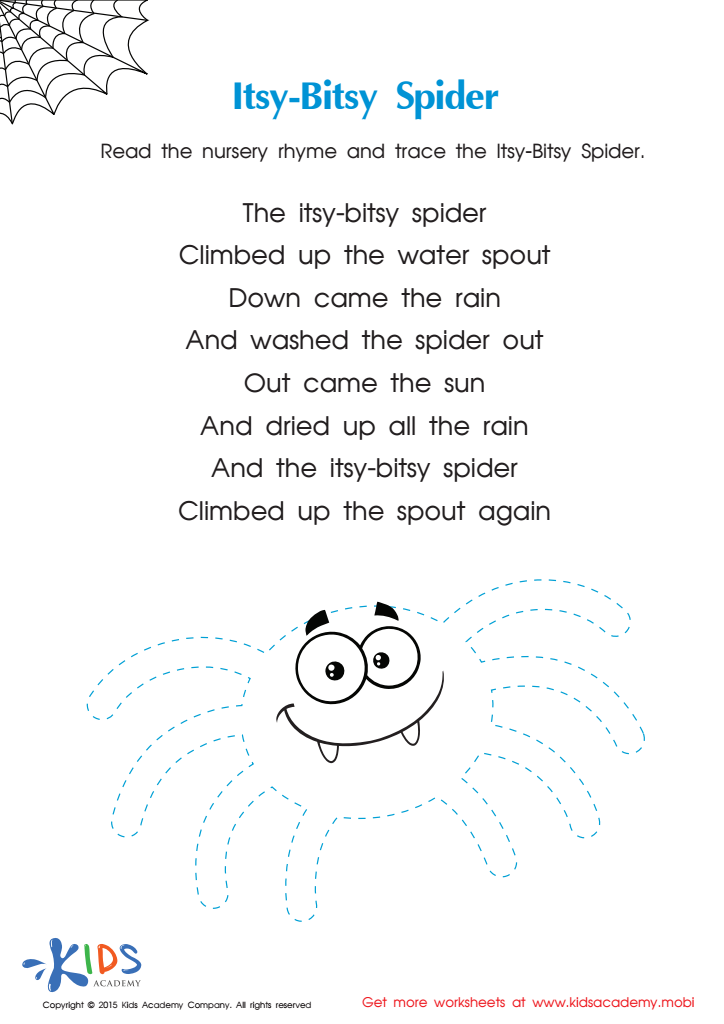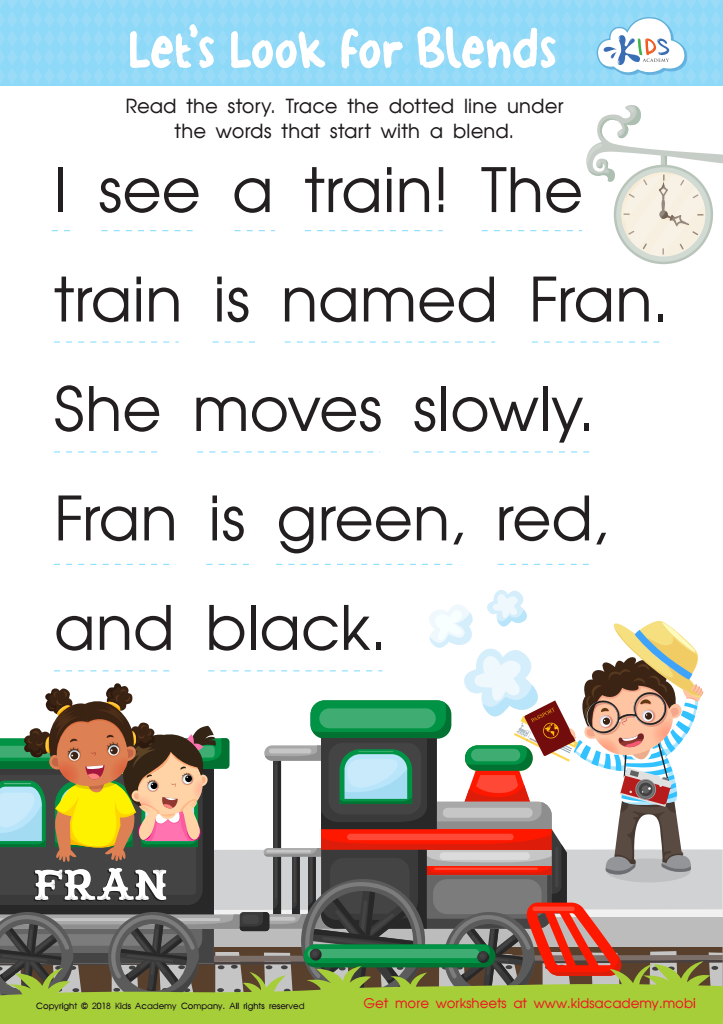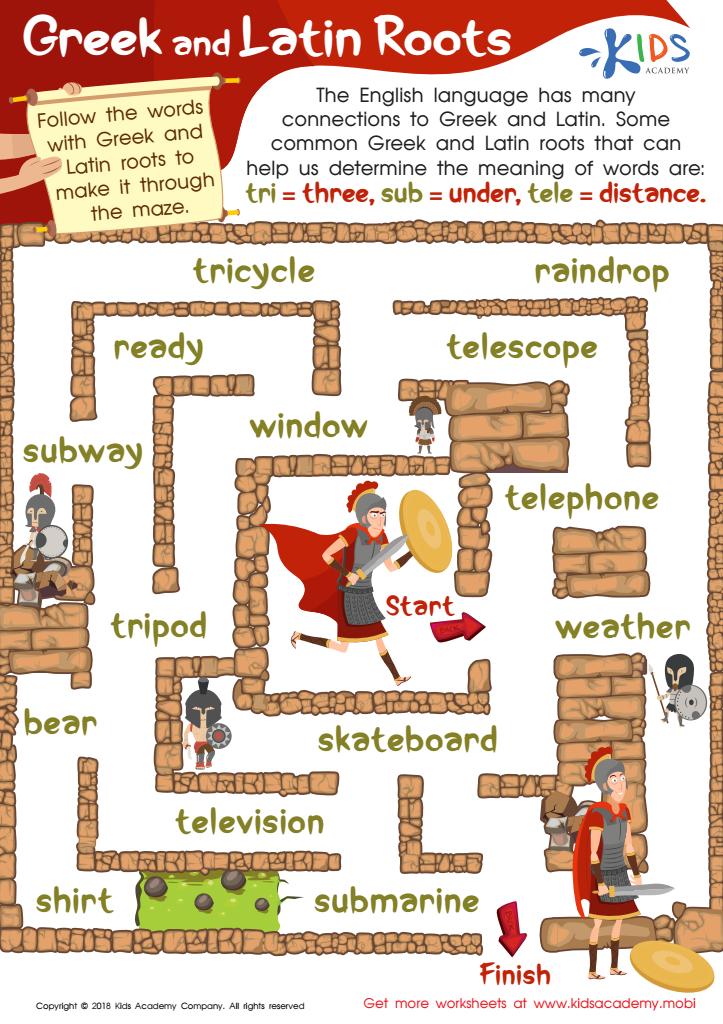Language development Worksheets for Kids
3 filtered results
-
From - To


Itsy Bitsy Spider Nursery Rhyme PDF Worksheet


Let's Look for Blends Worksheet


Greek and Latin Roots Worksheet
Question/Answer
What are some effective activities to train students’ Language development skill when teaching them about Consonant Blends?
Effective activities for training students in consonant blends include: 1. Blending sounds games where students combine individual sounds to form words. 2. Word sorting exercises categorizing words based on their initial or final blends. 3. Phonics "hopscotch" where children jump on mats labeled with blends, saying the sound. 4. Interactive blend matching activities on digital platforms. 5.
How to train the Language development skill in Grade 1 students learning about Consonant Blends?
To train Grade 1 students in language development focusing on consonant blends, incorporate phonics activities such as blending sounds games, interactive flashcards, and word matching. Use visual aids and repetitive reading exercises that highlight blends. Engage them in writing tasks to apply their knowledge, and provide constructive feedback. Encourage group activities for peer learning and practice.
How does the mastery of the Language development skill affect a student's performance at an early age?
Mastery of language development at an early age significantly enhances a student's performance. It boosts cognitive abilities, enhances comprehension and expression, improves communication skills, and facilitates learning in all subjects by improving reading and writing skills. Early language mastery also fosters better social interactions and self-confidence, leading to a more engaged and successful educational experience.

 Assign to the classroom
Assign to the classroom











